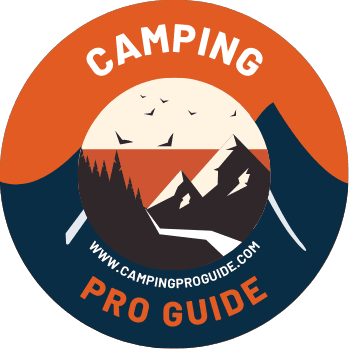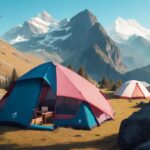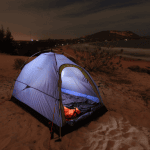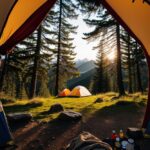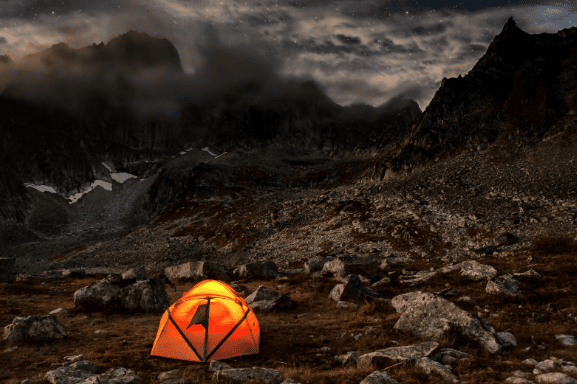
The allure of the great outdoors has captivated the human spirit for millennia. From the lush green woods to the echoing canyons, nature offers an escape from the everyday hustle and bustle. For many, the idea of solo camping represents the ultimate form of this escape: an opportunity to commune with nature in its purest form, without distractions or interruptions. However, taking to the wild alone also presents unique challenges. This guide is here to provide tips to ensure your solo camping journey is both safe and spiritually fulfilling.
Planning is Key
Before you pack your bags, take time to carefully plan your trip:
- Research your campsite: Familiarize yourself with the terrain, water sources, and wildlife in the area. National park websites or local tourism boards can be good sources of information.
- Check the weather forecast: Prepare for any possible weather changes and pack accordingly.
- Inform someone: Always let someone know where you’re going, your planned route, and when you expect to return.
Preparation: Your Best Companion
Your solo journey starts well before you step into the wilderness:
- Know Before You Go: Get to know the camping area. Are there any restrictions, common dangers, or required permits? Knowledge is power.
- Weather Watch: Mother Nature is unpredictable. Check weather forecasts and be prepared for sudden changes.
- Stay Informed: Always ensure a close friend or family member knows your whereabouts and expected return.
Pack Smart, Not Heavy
Efficiency is crucial when you’re on your own. Remember:
- Essential gear first: Prioritize shelter (like tents and sleeping bags), food, water, and first aid.
- Limit non-essentials: While a good book or a camera might enhance your experience, avoid over-packing.
- Layer up: Wear layers that can be easily added or removed based on weather conditions.
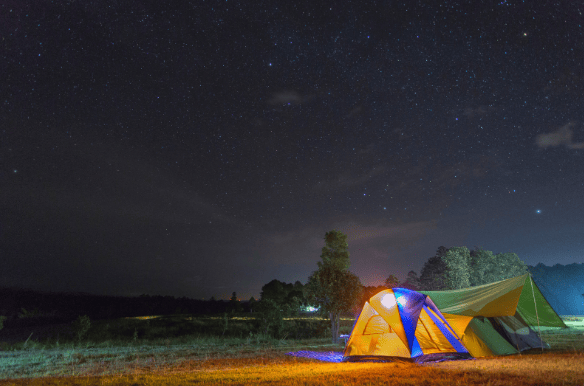
Stay Connected
While the idea is to disconnect, staying connected can be a lifesaver:
- Carry a map and compass: Modern technology is great, but batteries die. Traditional navigation tools are reliable backups.
- Emergency devices: Consider satellite phones or personal locator beacons in areas without cell reception.
Respect the Wildlife
Remember, you’re a guest in their home:
- Maintain a distance: Avoid feeding or approaching animals, even if they seem friendly.
- Store food securely: Use bear-resistant containers or hang food away from your camp to avoid attracting wildlife.
- Know the predators: Educate yourself on local predators and take precautions.
Light Your Way
Darkness in the wilderness is different from what we’re used to in the city:
- Headlamps are invaluable: They keep your hands free and direct light where you look.
- Carry extra batteries: Always have backups, especially if your trip is longer.
- Avoid fire hazards: If you make a campfire, follow local guidelines and always ensure it’s fully extinguished before leaving or sleeping.
Embrace the Solitude
Solo camping offers a unique chance for introspection:
- Practice mindfulness: Whether through meditation, journaling, or just taking in the surroundings, use this time to connect deeply with yourself.
- Limit technology: Try to avoid spending too much time on electronic devices. Let nature be your primary entertainment.
Leave No Trace
Nature should look the same when you leave as when you arrived:
- Pack out all trash: Whatever you bring in, make sure to bring out.
- Use biodegradable soaps: This reduces the environmental impact of washing.
- Stay on marked trails: This helps prevent unnecessary wear and tear on the environment.
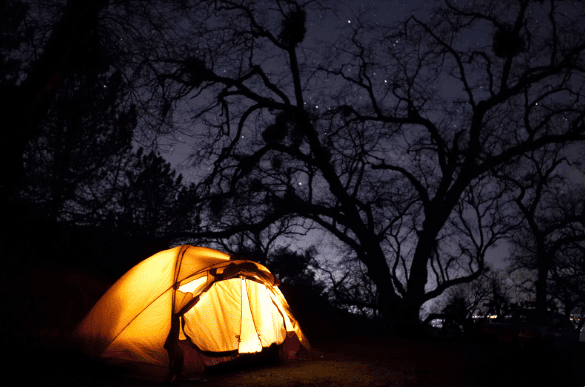
Harmony with Habitats
You are in the wild. Safety and respect go hand in hand:
- Food Protocols: Secure your food. Animals have a keen sense of smell and will be attracted to your campsite.
- Safe Distance: Observing wildlife is a joy, but remember to keep your distance.
- Educate Yourself: Familiarize yourself with common wildlife behaviors, especially potential dangers.
Conclusion
Solo camping can be an immensely rewarding experience, opening doors to both the boundless beauty of the world around us and the depths of our inner selves. Yet, like any endeavor, it requires preparation and respect—for nature, for wildlife, and for ourselves. By following the guidelines above, you’ll be well-equipped to embark on a safe and soulful journey into the wild. Let the rhythm of nature be your guide, and may your solo camping adventure be filled with wonder and discovery.
